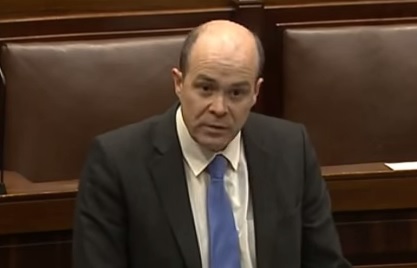Ireland’s greenhouse gas (GHG) emissions target for 2030 will be finalised later today, as the EU’s environment ministers gather for a “crucial meeting” in Luxembourg.
The Minister for Communications, Climate Action and Environment, Denis Naughten, will join the council to agree a “general approach” on proposals for member states’ emissions targets for 2021-2030 – as part of the EU’s Effort Sharing Regulation (ESR).
The ESR covers more than 60% of the EU’s GHG emissions; setting binding national emission reduction targets for sectors such as transport, buildings, waste and agriculture.
John Sweeney, emeritus professor of geography at Maynooth University, and leading expert on climate science, expects Minister Naughten to lobby hard for concessions for Ireland as the country is widely projected to miss its 2020 gas emissions target by a substantial amount.
“The ESR is the culmination of three years of debate and discussion at EU Council, parliament, and commission level, and it is crucial for Ireland because it will determine our obligations for the next 10 years in the areas of agriculture, residential and transport emissions.
The concern I would have is that Ireland has wangled so much in the way of flexibilities, that it will negate our effort to actually achieve the necessary reductions to advance us towards the national policy position that all member states have adopted. I hope the outcome from today will not thwart future efforts to tackle climate change in all these areas.
On a global scale, Sweeney describes Ireland’s current performance on tackling the issue as “disappointing”.
“In 2009 we signed up to a solemn obligation to reduce our GHG emissions by 20% by 2020. At the moment it looks like we will achieve a reduction maybe of around 4%, if even that, and this is something that places Ireland out of kilter with virtually all the other countries in Europe.
We are not only failing to achieve the obligations that we signed up to for 2020, but we are in dire straits of failing to make progress on the obligations that we have imposed on ourselves for de-carbonisation of our economy by mid-century.
Agreement today will allow negotiations with the European Parliament to begin.
Also on the agenda, the council will agree the EU position for next month’s annual United Nations Climate Change conference, COP23, to be held in Bonn, Germany.
